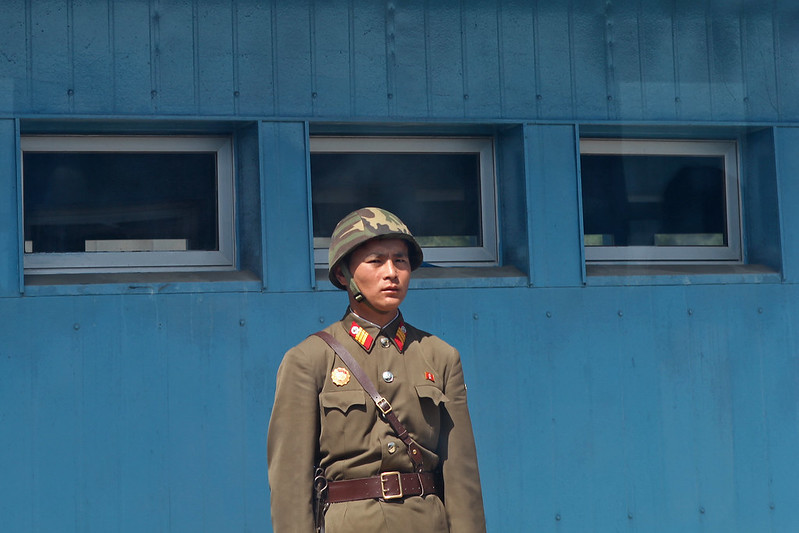DORIEN ADMIRAAL, JOO HEE HEIDEBRINK
“I just like to let the world know. You cannot imagine the North Korean situation and the North Korean people’s mind-set with your own common sense. We should take care and cure the damages in their minds and their lives. That is our task.”
Eun Kyoung Kwon is a modest South Korean woman with a strong and passionate desire to help her North Korean neighbours. For years she and the NGO she works for, Open Radio for North Korea (ORNK), have been active in raising international interest for the deplorable situation of the North Korean people. In a way Kyoung Kwon and the ORNK are the root of the UN report released last February, by urging Washington and the Human Rights Council to establish a Commission of Inquiry for human rights in North Korea.
We meet Eun Kyoung Kwon at the T.M.C. Asser Institute in The Hague, where the UN report was presented. She explains to us the importance of the report: “Until the issuing of the COI report, we [the NGO community] were the only ones to raise our voices and expose the North Korean human rights situation to the world. We were the ones who knew the reality of North Korea.” With the release of this report the international community has been made aware of the widespread human rights violations in the Democratic People’s Republic of Korea (DPRK). Or, in the words of the COI chairman Michael Kirby, “now we know”.
“Now we should change our direction into the way to solve,” Kyoung Kwon continues. “Our ideal way is democratisation by North Korean people’s hands.” To bring forth this process of democratisation, according to Kyoung Kwon, the citizens of the DPRK need to fully understand the crimes committed against them by the totalitarian regime of Kim Jong-un. This is where the ORNK steps in. By broadcasting radio programmes into North Korea ORNK aspires to reach North Korean listeners and make them aware of their own situation. Kyoung Kwon hopes that they are listening, even though this is considered a crime in the DPRK. However, by talking to defectors she knows that the ORNK does in fact have an audience, small as it may be. “Just imagine that in the dim light at late night, you have to tune in to those weak sounds. They have to listen carefully to the signals and the voices. Anyway, they are listening to South Korean accents so they know it is aired by South Korean people.”
“When we just started these radio activities, we tried to mimic the accent and terms of North Korea,” Kyoung Kwon explains. “But now we know that thanks to the influence of South Korean movies and soap operas they now can understand the South Korean accent.” Especially these soap operas have become quite popular phenomena in North Korea recently, mostly through illegal Chinese portal sites and imported DVDs.
Although Kyoung Kwon welcomes any external information that seeps through their heavily guarded borders, she beliefs these ‘cultural things’ such as soap operas are not enough to raise North Korean people’s awareness of human rights. “Therefore, since 2005 the ORNK has started programmes with knowledge.” Besides information about human rights and international affairs, they also read out aloud the entire UN report during these programmes.
However, Eun Kyoung Kwon realises that awareness and subsequent democratisation of the North Korean society can only be achieved if the information provided by the ORNK can break through the deep indoctrination generated by the propaganda machine of the DPRK regime. “For indoctrination is the way to kill people’s creativity, power and self reliance, which is the key life power for any individual. That power is killed by the [DPRK] authorities.”
Dorien Admiraal (Master student Holocaust & Genocide Studies, researching the impact of controversial acquittals of the ICTY)
Joo Hee Heidebrink (Master student Holocaust & Genocide Studies, researching North Korean prison camps in the context of the DPRK state ideology)
